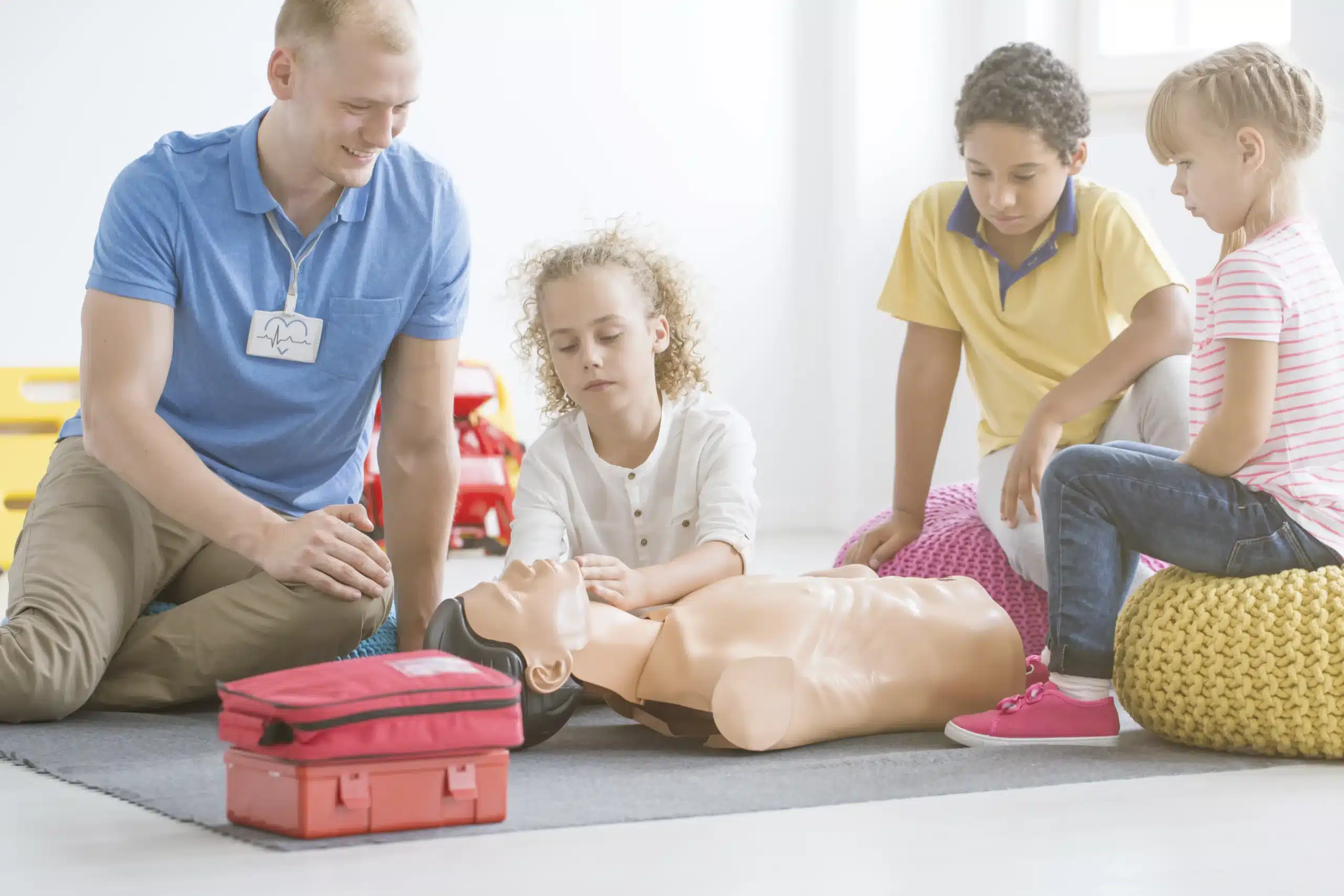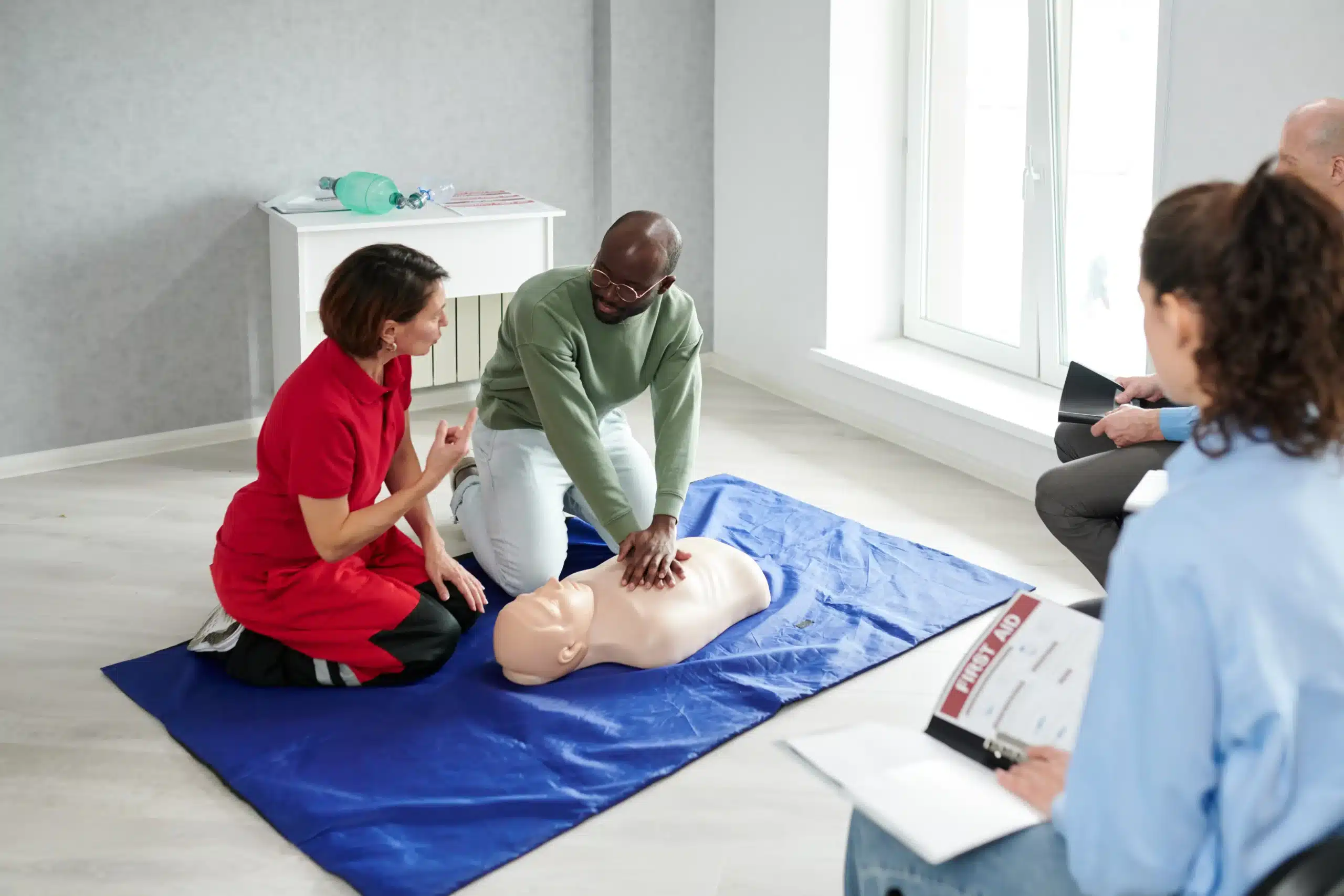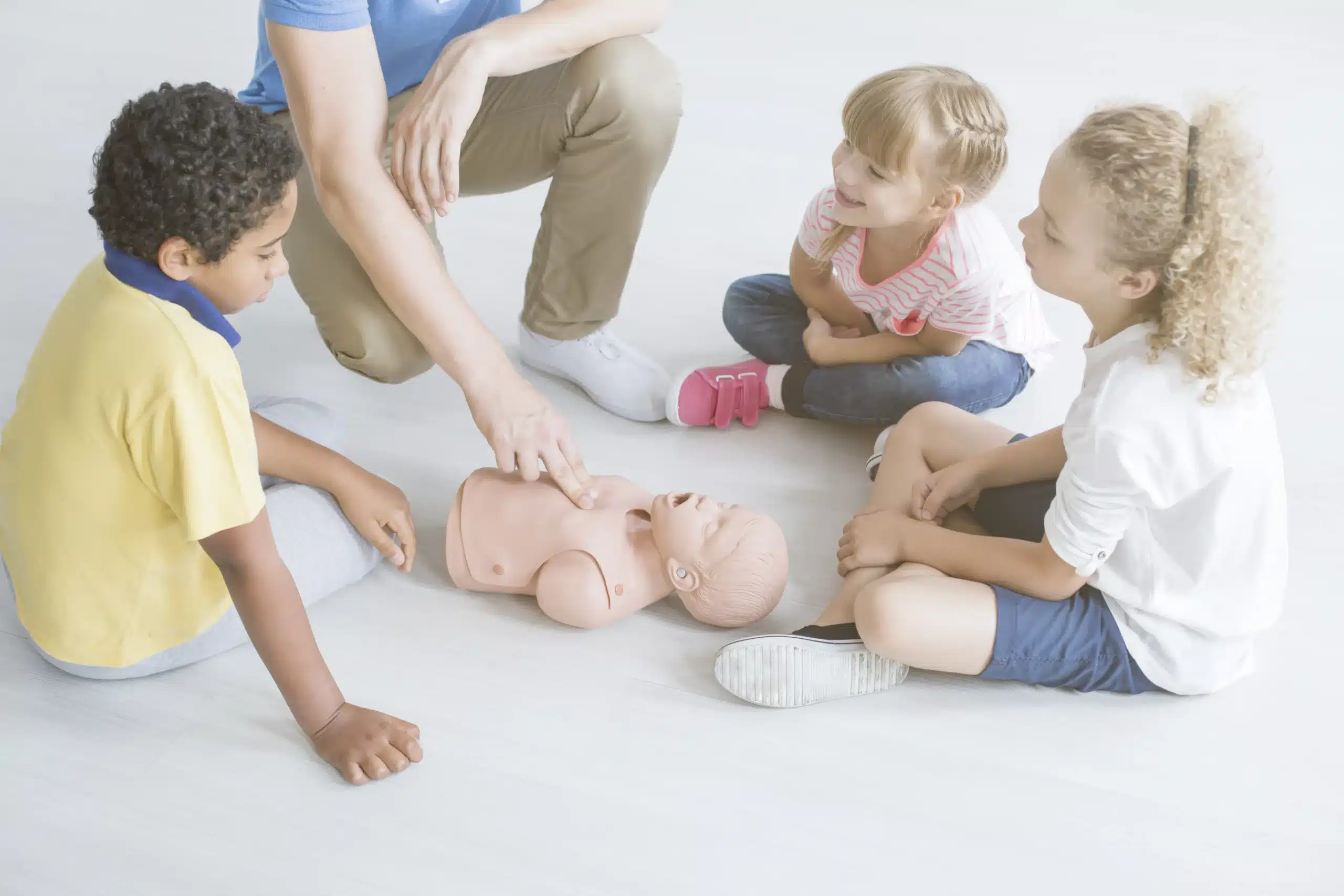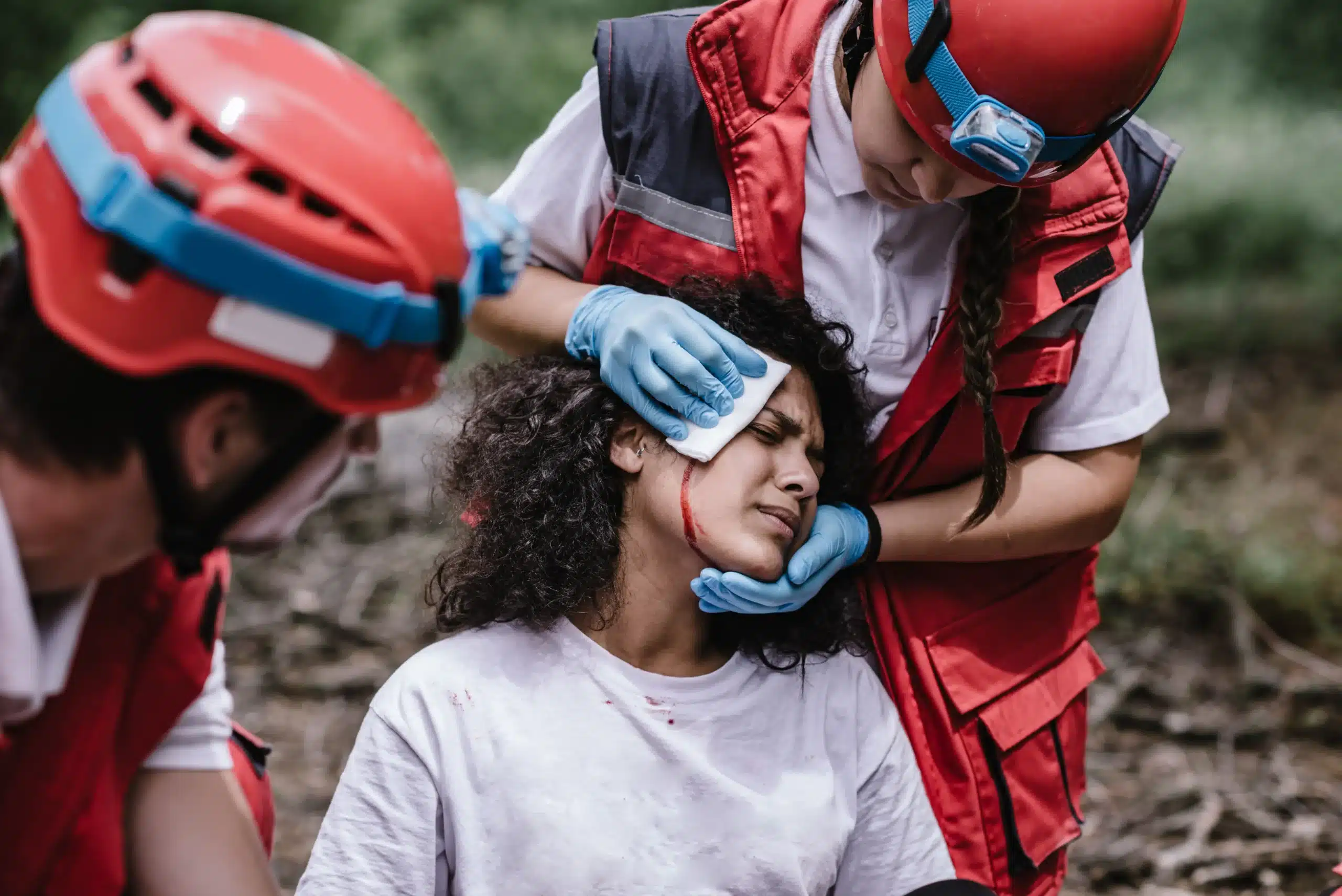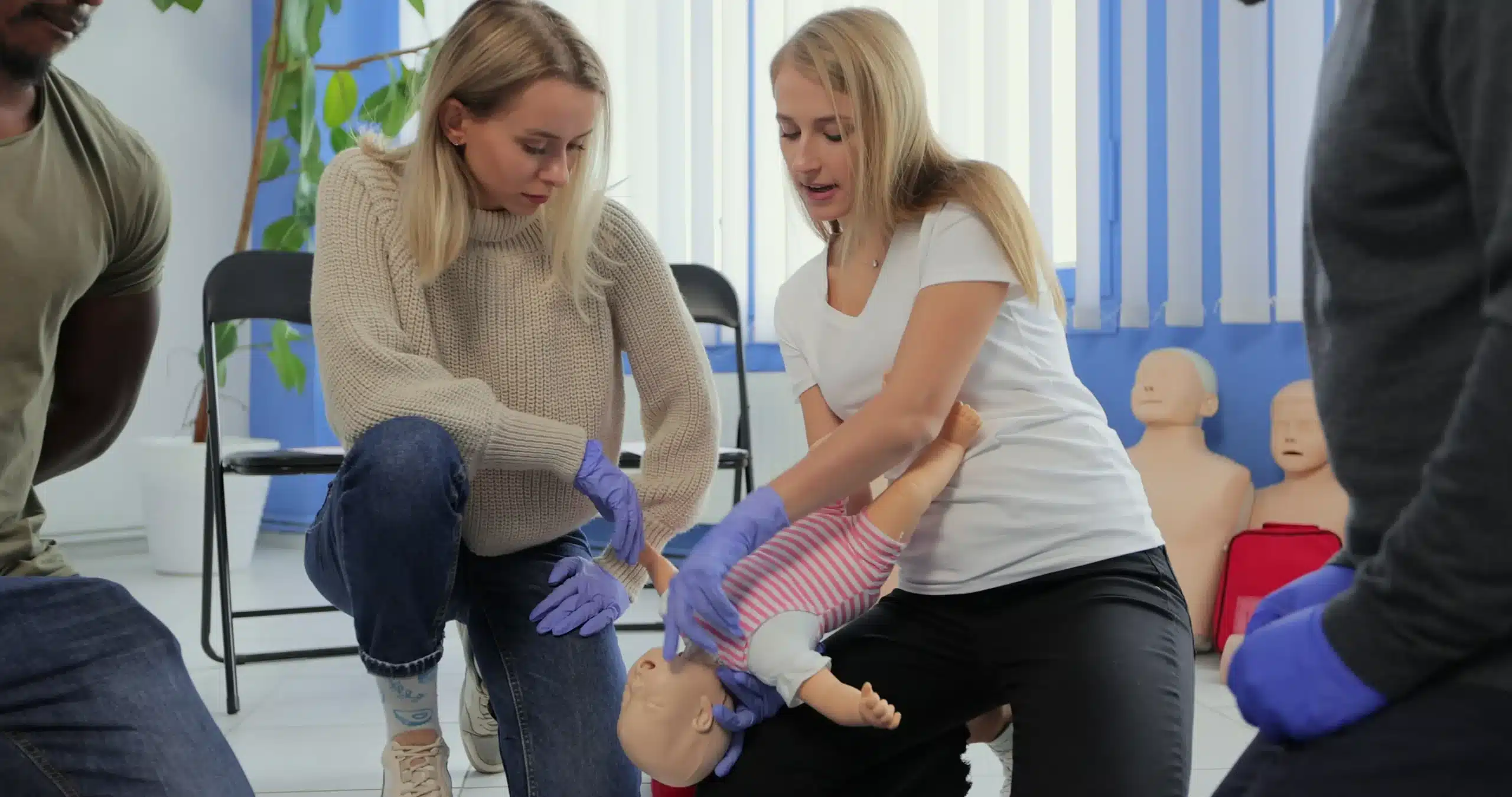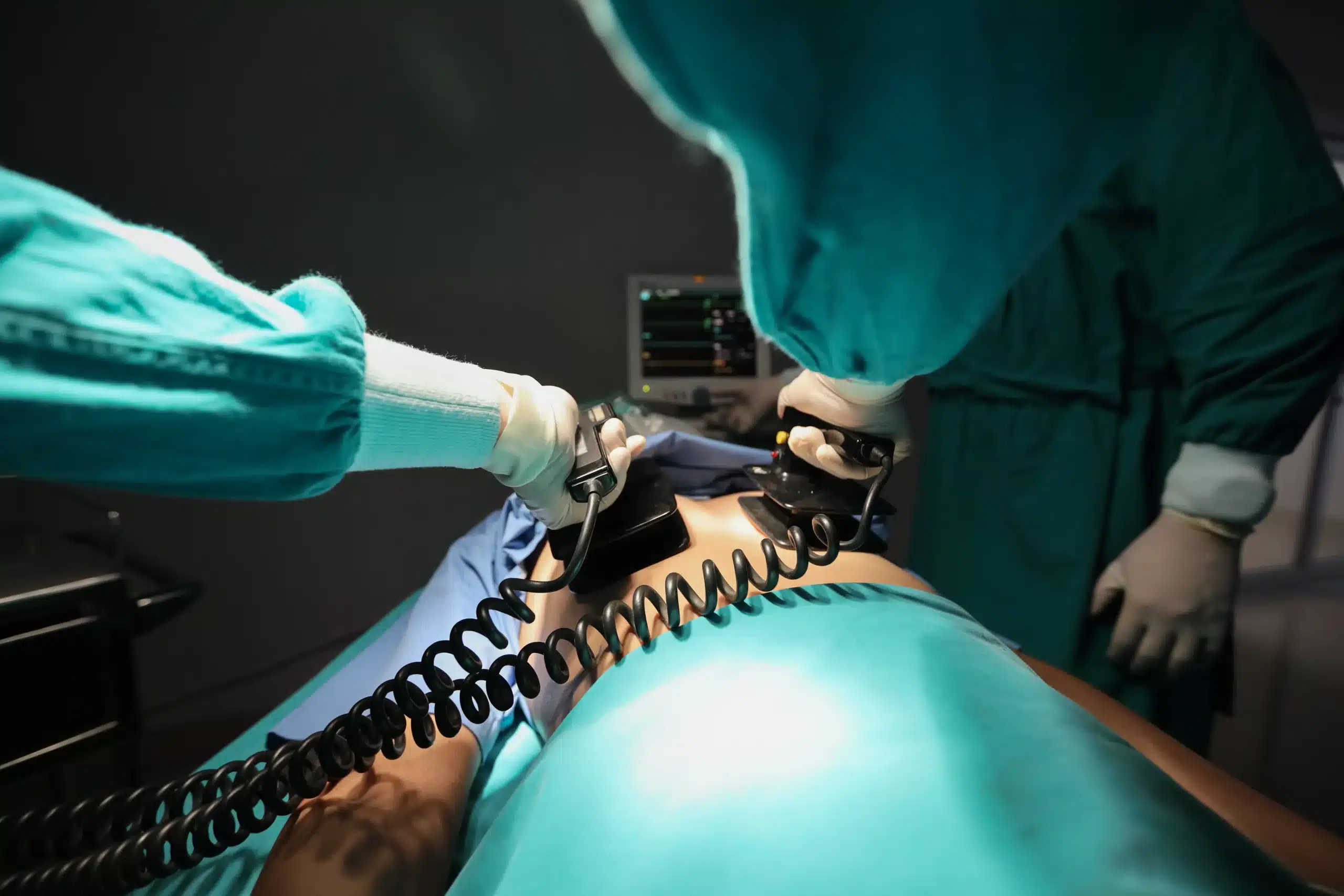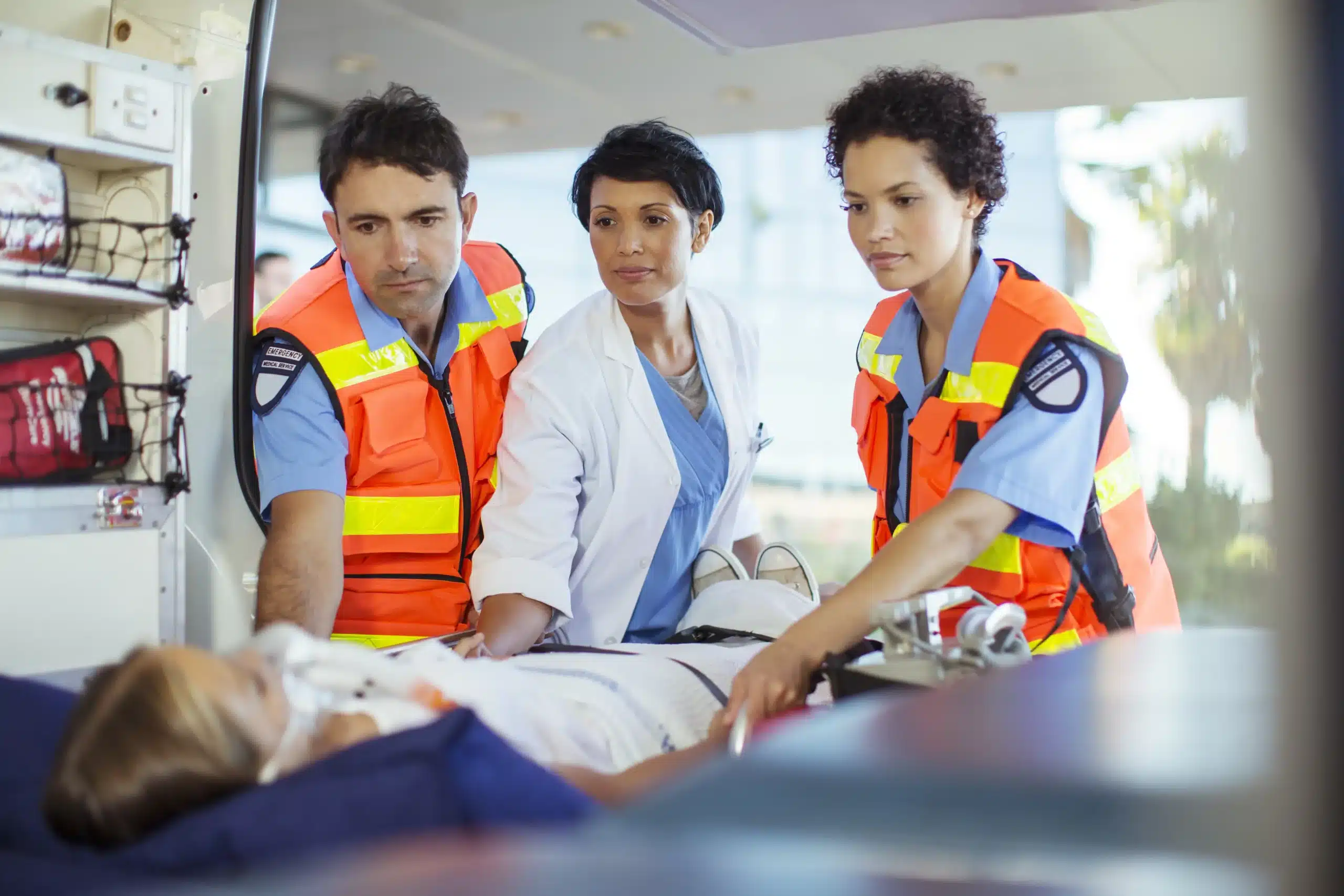Working in healthcare, you know how critical it is to be prepared for any emergency. BLS for healthcare providers in Livermore equips you with the skills to respond confidently to life-threatening situations. This guide simplifies the process of getting BLS certified, covering everything from course content and expectations to finding the right training provider in Livermore. Whether you’re a seasoned professional or just starting your healthcare career, we’ll provide valuable insights and resources to help you choose the best BLS course for your needs.
Key Takeaways
- BLS is more than just CPR: It gives healthcare providers the advanced skills to handle serious emergencies like cardiac arrest and respiratory distress. Hands-on practice is essential for building confidence and proficiency.
- Finding the right course matters: Explore different BLS course formats (in-person, blended, or online) and consider factors like accreditation, instructor qualifications, and schedule flexibility to find the best fit.
- Stay prepared and current: Prepare for your course by reviewing study materials and actively participate in hands-on training. Remember to renew your certification every two years to maintain your life-saving skills.
What is BLS for Healthcare Providers?
Definition and Importance
BLS certification is crucial for healthcare professionals like doctors, nurses, EMTs, and first responders. It goes beyond standard CPR training, giving providers advanced life-saving skills to handle cardiac arrest, respiratory distress, and airway obstructions. Think of BLS as your emergency toolkit—it provides the knowledge and practical skills to deliver effective aid when seconds count. This specialized training empowers healthcare providers to confidently respond to critical situations and provide essential care. Preparing beforehand with pre-course study materials and practice tests can really maximize your learning. Solid preparation is key to getting the most out of your BLS training.
Key BLS Skills
BLS courses cover a comprehensive range of skills vital for effective emergency response. You’ll learn how to perform CPR on adults, children, and infants, use an AED, and other essential equipment. The training also addresses special situations like managing opioid overdoses. Hands-on practice with manikins is a key part of the course, allowing you to develop the muscle memory and confidence needed to respond effectively in real-life emergencies. This practical experience bridges the gap between theory and practice, ensuring you’re prepared to act quickly and skillfully when faced with a crisis. Mastering these skills is essential for any healthcare provider committed to providing the best possible care.
Find BLS Certification in Livermore
Finding the right BLS certification course in Livermore depends on your learning style, schedule, and budget. Luckily, several options are available, from traditional in-person classes to online and blended learning programs. This section will walk you through the different formats so you can find the best fit.
In-Person BLS Courses
For those who prefer a hands-on, instructor-led experience, in-person BLS courses are a great option. Safety Training Seminars offers American Heart Association (AHA) BLS Provider and Renewal courses in Livermore. These courses provide comprehensive training, including CPR, and are ideal for those who learn best in a traditional classroom setting. With classes running daily from 8 am to 10 pm, seven days a week, finding a convenient time is easy. They also offer courses for groups, so you can train with colleagues or classmates.
Online & Blended Learning
If your schedule is tight or you prefer learning at your own pace, online and blended learning might be a better fit. The AHA’s RQI program is a popular choice for healthcare professionals seeking a fast and efficient way to get certified. RQI combines online learning modules with in-person skills sessions, offering flexibility while still providing the necessary hands-on practice. This blended approach allows you to complete the coursework online and then schedule a short skills session to demonstrate your proficiency.
Compare Course Formats
Choosing the right BLS course format comes down to personal preference and learning style. In-person courses offer a more interactive experience with direct instructor feedback, while online and blended learning provide greater flexibility and convenience. Livermore offers various options with flexible schedules and competitive pricing, so you can find a course that meets your needs and budget. Consider factors like course length, cost, and the availability of group discounts when making your decision. Whether you choose a traditional classroom setting or a more modern blended approach, the most important thing is to get certified and be prepared to provide critical life-saving care.
Top Livermore BLS Providers
Finding the right BLS certification course can feel overwhelming, but several excellent providers serve the Livermore area. Here’s a quick rundown to help you start your search.
Safety Training Seminars
Safety Training Seminars is a woman-owned AHA Training Center offering high-quality BLS, ACLS, PALS, CPR, and First Aid courses right here in Livermore. They pride themselves on customer service and offer classes seven days a week, making scheduling easy. They also serve surrounding areas, so check their website to see if they have a location near you.
AHA Training Centers
Looking for more options? Safety Training Seminars also offers AHA courses throughout Northern California. This can be a great option if you’re looking for a class outside of Livermore or prefer a different location. Browse their course catalog to explore options.
CPR Education
CPR Education provides CPR and first-aid training in Livermore and the surrounding areas. As an AHA-certified provider, they offer classes for individuals, groups, and businesses.
Bay Area CPR
Bay Area CPR offers AHA BLS, ACLS, and PALS classes in Livermore. Visit their website to view their course schedule.
Local Hospitals & Medical Centers
Consider checking with local hospitals and medical centers for additional BLS training options. Cascade Training Center, for example, offers various AHA resuscitation training courses in the Livermore region. Contacting your local hospital directly can provide insights into available programs.
Choose the Right BLS Course
Finding the right BLS course involves considering several key factors to ensure it meets your needs and helps you confidently provide high-quality care. Here’s what to look for:
Accreditation & Validity
First things first, confirm the course is accredited by a recognized organization like the American Heart Association (AHA). AHA-certified courses, like those offered at Safety Training Seminars, meet industry standards and are widely accepted. This ensures your certification is valid and demonstrates your commitment to maintaining current skills. AHA certifications are typically valid for two years.
Course Length & Schedule
Balancing your busy schedule with training is often a challenge. Look for a provider that offers flexible scheduling. Safety Training Seminars offers classes daily from 8 am to 10 pm, seven days a week, which can make fitting a class into your routine much easier. Consider whether you prefer a one-day intensive course or one spread out over a few sessions.
Instructor Qualifications
Experienced, certified instructors make a big difference in your learning experience. They can provide personalized guidance and answer your questions effectively. Check if the training center, like the woman-owned Safety Training Seminars, employs instructors with extensive experience and up-to-date AHA certifications.
Cost & Discounts
BLS course costs can vary. Renewal courses typically range from $70 to $90, but factor in any additional fees for materials or certification cards. Many providers offer discounts for groups, students, or returning learners. Don’t hesitate to ask about potential cost savings. Safety Training Seminars even offers a low price guarantee.
ROI for Healthcare Professionals
For healthcare professionals, BLS certification is an investment in your career. AHA certification is often a requirement for many healthcare jobs and demonstrates your commitment to patient safety. It can open doors to new opportunities and enhance your professional credibility. A BLS certification from a reputable provider like Safety Training Seminars can significantly impact your career trajectory.
BLS Course Content & Expectations
So, you’re ready to take a BLS course? Here’s what you can expect, whether you’re getting certified for the first time or renewing your existing BLS skills.
Core Curriculum
The Basic Life Support (BLS) course for healthcare providers covers the essential skills needed to respond to life-threatening emergencies. You’ll learn how to recognize and manage cardiac arrest and other respiratory emergencies, including choking. High-quality CPR is a major focus, giving you the confidence to perform chest compressions and rescue breaths effectively. BLS training also covers using an automated external defibrillator (AED) and other critical interventions. For a helpful overview, check out this guide to BLS classes in Livermore.
Hands-on Practice & Assessment
BLS courses aren’t just lectures and videos. Expect a significant amount of hands-on practice working with training manikins to simulate real-life scenarios. This helps you develop muscle memory and refine your technique. Practical assessments are also key, with instructors evaluating your competency in performing CPR, using an AED, and responding to various emergencies. Successful completion earns you an official AHA certification card, valid for two years, demonstrating your BLS proficiency. This is often a requirement for healthcare professionals. The RQI program, offered by the American Heart Association, is a popular and efficient way for medical professionals to obtain their BLS certification.
Renewing Your Certification
Staying current with the latest BLS guidelines and techniques is crucial for healthcare providers. Renewing your BLS certification every two years ensures you’re up-to-date on protocols and reinforces essential skills. Renewal courses typically cost between $70 and $90, but prices can vary. Check with your chosen training provider for specifics. Regular renewal ensures you’re always prepared to provide the best possible care in emergencies.
Prepare for Your BLS Certification
Getting ready for your BLS certification involves more than just showing up for class. A little prep work goes a long way in building confidence and ensuring you get the most out of your training.
Study Materials & Resources
Maximize your BLS training by reviewing any pre-course materials. Many providers, including Safety Training Seminars, offer study guides and practice tests to reinforce your learning. Taking some time to familiarize yourself with the material beforehand will make the in-class instruction more effective. You can find additional resources and information in our guide to BLS classes in Livermore.
Tips for Success
Beyond studying, a few practical tips can help your BLS certification experience go smoothly. Consider the class schedule and choose a time that works best for you. Safety Training Seminars offers classes seven days a week, which makes fitting a class into your busy life much easier. Bring a notebook and pen to jot down key takeaways or any questions that come up during the course. Most importantly, come prepared to actively participate—hands-on practice is a crucial part of BLS training. For more helpful tips, review our guide to CPR classes in Livermore.
After Certification: Next Steps
Congratulations on completing your BLS certification! Your AHA certification card is valid for two years. Keep it in a safe place and make a note of the expiration date. As your renewal date approaches, remember that Safety Training Seminars offers convenient BLS renewal courses, along with other certifications like CPR, ACLS, PALS, and First Aid. Staying current with your certification ensures you’re always prepared to provide crucial, life-saving care.
Related Articles
- BLS Classes in Dublin: Your Complete Guide – Livermore CPR Classes
- BLS Certification in Mountain House for Healthcare Providers – Livermore CPR Classes
- Essential Guide to BLS Courses in Mountain House – Livermore CPR Classes
- BLS Training in Livermore: Your Comprehensive Guide – Livermore CPR Classes
- BLS Certification in Mountain House: Your Guide – Livermore CPR Classes
Frequently Asked Questions
How long is BLS certification valid? BLS certification, like those offered by the American Heart Association, is typically valid for two years. It’s important to renew your certification before it expires to maintain your skills and credentials.
What’s the difference between BLS and CPR certification? While CPR is a core component of BLS, BLS training goes further. It provides healthcare providers with advanced life-saving skills for various emergencies, including cardiac arrest, respiratory distress, and airway obstructions. It also covers team dynamics and the use of equipment like AEDs.
What if I have a busy schedule? How can I fit BLS training in? Many providers offer flexible scheduling options, including weekend and evening classes. Some also offer blended learning formats, combining online coursework with shorter in-person skills sessions. This allows you to complete the didactic portion at your own pace and then schedule a convenient time for the hands-on practice and assessment.
How much does a BLS course cost? The cost of a BLS course can vary depending on the provider, location, and course format. Renewal courses are often more affordable than initial certification courses. It’s always a good idea to contact the training center directly to inquire about pricing and any available discounts for groups, students, or returning learners.
What can I do to prepare for my BLS course? Reviewing any pre-course materials provided by your training center can be incredibly helpful. Many providers offer study guides or practice tests to familiarize you with the content before class. This can significantly enhance your learning experience and boost your confidence during the hands-on portions of the course.
